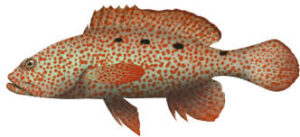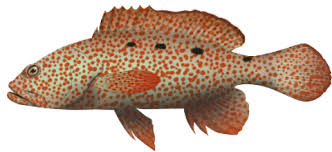The Dragon and the Symbol of Cosmic Power in Chinese Culture

The dragon, a legendary creature deeply embedded in the cultural and spiritual fabric of China, is a multifaceted symbol that represents various aspects of Chinese life, particularly power, strength, and cosmic energy. As one of the most iconic symbols in Chinese mythology, the dragon is revered not only as a force of nature but also as a cosmic entity that embodies the harmonizing forces of the universe. This article explores the rich cultural significance of the dragon in Chinese culture, specifically as a symbol of cosmic power, and its influence on philosophy, mythology, and various traditional practices.
1. The Dragon as a Cosmic Symbol in Chinese Cosmology
In Chinese cosmology, the universe is understood to be governed by a series of cosmic forces that shape the order of nature, the cycle of life, and the balance of energies. Central to this belief is the concept of yin (陰) and yang (陽), the dualistic forces that govern the universe. The dragon is often seen as a representation of yang, the masculine, active, and creative force that complements the passive and receptive yin. This dynamic interplay between yin and yang is considered the fundamental force driving the universe.
The dragon’s cosmic power is reflected in its ability to harness and control the natural elements. In Chinese mythology, dragons are closely associated with water, particularly rivers, seas, and rain. They are believed to have the power to control the weather, a trait that aligns with their role as cosmic beings. The dragon’s association with water is symbolic of the flow of cosmic energy, which sustains all life and maintains the harmony of the universe. It is believed that when the dragon stirs the waters, it is a sign of an impending shift in the cosmic balance, often leading to prosperity or calamity depending on the dragon’s actions.
Additionally, the dragon’s connection to the elements of water and earth highlights its role as a creature that can channel and balance the forces of nature. The dragon, in this sense, embodies the power to restore or disrupt cosmic order, making it a revered figure that can both protect and destroy, depending on the circumstances.
2. The Dragon as the Emperor’s Cosmic Power
In ancient China, the emperor was considered the Son of Heaven, the divine ruler who had been chosen to govern over the earth on behalf of the heavens. The emperor’s rule was believed to be a reflection of the cosmic order, with his actions and decisions directly affecting the balance of the universe. The dragon was thus adopted as the symbol of imperial authority, representing the emperor’s divine mandate to rule over all things, both earthly and cosmic.
The imperial dragon, also known as the Long Wei (龙威), was often depicted as a five-clawed dragon, a symbol exclusive to the emperor. This dragon was considered to possess the supreme cosmic power to control the heavens and the earth, reflecting the emperor’s status as the ultimate cosmic ruler. The dragon’s majestic presence in imperial art, architecture, and clothing was a constant reminder of the emperor’s role as the celestial representative of cosmic authority.
The emperor’s association with the dragon also underscored the belief that the ruler’s actions could directly impact the flow of cosmic energy. A prosperous and just emperor was believed to bring harmony to the heavens and the earth, while a tyrannical ruler could upset the cosmic balance, leading to natural disasters and turmoil. Thus, the dragon was not just a symbol of political power but also a reflection of the emperor’s responsibility to maintain cosmic order.
3. The Dragon and the Taoist Concept of the Dao (Way)
In Taoism, the dragon is also deeply connected to the concept of the Dao (道), the fundamental principle that flows through the universe, governing all life and cosmic forces. The Dao is often described as an invisible, formless force that gives birth to all things and maintains the balance of the cosmos. The dragon, as a creature that can shape and control the elements, embodies the dynamic, flowing nature of the Dao.
Taoist philosophy teaches that to align oneself with the Dao is to live in harmony with the universe, understanding the natural flow of energy and forces that govern existence. The dragon, in Taoist thought, represents the perfect manifestation of this harmony. It is a symbol of the constant movement of cosmic energy, a force that flows through all things and gives life to the universe. The dragon’s ability to navigate and control the water element mirrors the Taoist ideal of flowing effortlessly with the currents of life, without resistance or force.
In Taoist mythology, dragons are often depicted as wise and enlightened beings, guardians of sacred knowledge and the secrets of the cosmos. These dragons are thought to have attained a level of spiritual understanding that allows them to manipulate the natural world and guide humanity toward enlightenment. The dragon’s association with the Dao highlights its role as a mediator between the earthly realm and the cosmic forces, ensuring that the balance of the universe is maintained.
4. The Dragon and Its Connection to the Five Elements
In Chinese philosophy, the Five Elements (Wu Xing, 五行) — Wood, Fire, Earth, Metal, and Water — are the fundamental building blocks of the universe. Each element represents a different type of energy and plays a unique role in the continuous cycle of creation, destruction, and transformation. The dragon, as a cosmic entity, is intrinsically linked to these elements, particularly Water, but also has associations with Fire, Metal, and Wood in different contexts.
- Water: The dragon’s primary element is water, which symbolizes life, growth, and fluidity. The dragon’s ability to control water is central to its cosmic power. It can summon rain to nourish crops, control rivers to prevent flooding, and stir the oceans to bring about change. The dragon’s mastery over water reflects its dominion over the flow of cosmic energy, ensuring that life is sustained and the balance of nature is maintained.
- Fire: In some myths, dragons are also associated with Fire, particularly when they are depicted as fire-breathing creatures. This aspect of the dragon symbolizes transformation, destruction, and rebirth, as fire is both a destructive and purifying force. The dragon’s control over Fire reflects its role as a cosmic being capable of both creating and dissolving worlds.
- Metal: The dragon’s connection to Metal represents strength, durability, and the power to forge new realities. In some traditions, the dragon’s claws and scales are depicted as made of precious metals, symbolizing its indestructible nature and its role as a force of cosmic creation.
- Wood: Wood is linked to growth, expansion, and vitality. The dragon’s role in nurturing and protecting life is reflected in its association with Wood, which supports the creation of new life and the flourishing of nature.
The dragon’s relationship with the Five Elements demonstrates its role as a cosmic being capable of maintaining the balance between the forces of nature. Its ability to manipulate and control these elements reflects its vast cosmic power and its central role in the harmony of the universe.
5. The Dragon and the Chinese Zodiac: Cosmic Influence on Human Life
In the Chinese zodiac, the Dragon is one of the twelve animals that represent different years in a 12-year cycle. The Year of the Dragon is considered to be particularly auspicious, as the dragon is believed to bring good fortune, strength, and vitality. People born in the Year of the Dragon are often regarded as charismatic, ambitious, and powerful, reflecting the cosmic attributes of the dragon itself.
The Chinese zodiac is based on the belief that the year of one’s birth influences their fate, personality, and destiny. As the dragon is the most powerful and revered of all the zodiac animals, those born in the Year of the Dragon are believed to possess a unique connection to cosmic forces. The dragon’s influence over their lives is seen as a blessing, bringing them strength, good luck, and the potential to achieve greatness.
The dragon’s role in the Chinese zodiac underscores its status as a cosmic being that governs not only the natural world but also the destinies of individuals. Its cosmic power is thought to guide those born under its sign, shaping their lives and ensuring that they align with the forces of the universe.
6. Conclusion: The Dragon as a Cosmic Symbol of Power and Harmony
The dragon, as a symbol of cosmic power in Chinese culture, represents a vast and complex understanding of the universe. From its control over the elements to its embodiment of Taoist philosophy, the dragon serves as a reminder of the forces that shape our world and our lives. Its connection to water, fire, metal, and wood reflects the intricate balance of energies that sustain the universe, while its association with the emperor and the Chinese zodiac highlights its importance in both earthly and spiritual matters.
As a cosmic being, the dragon is both a protector and a force of transformation, embodying the dynamic interplay of creation, destruction, and renewal. It is a symbol of strength, wisdom, and harmony, reminding us of the deep connection between the individual, the natural world, and the cosmos. The dragon’s legacy as a symbol of cosmic power will continue to shape Chinese culture and philosophy for generations to come.


